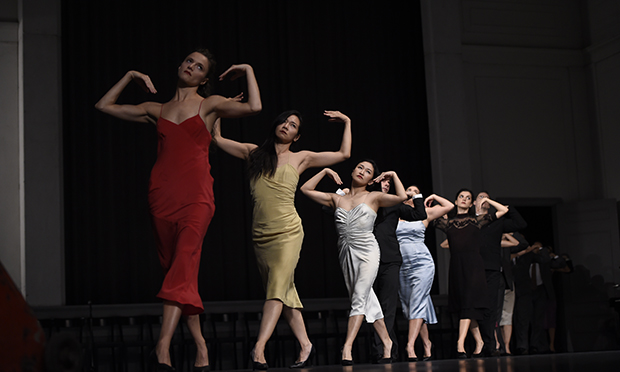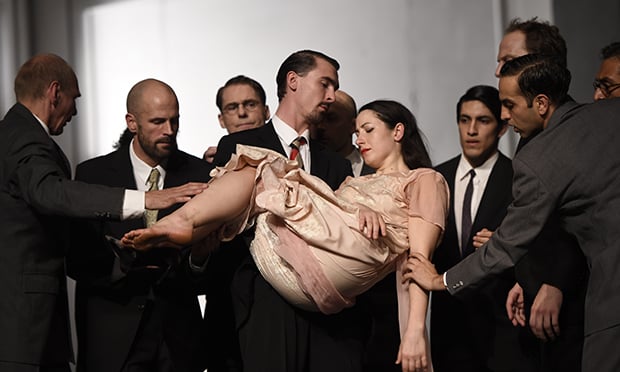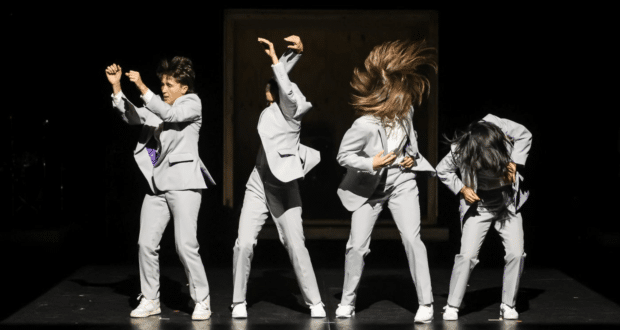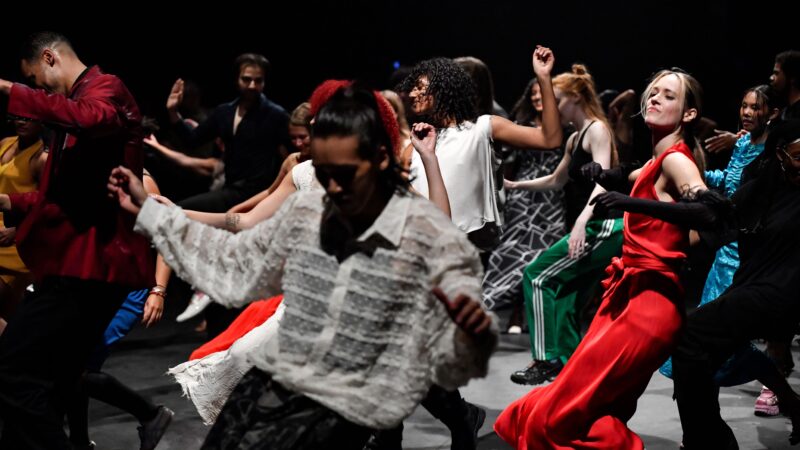Sadler’s Wells
‘Deeply funny and moving’
With the shadow of Pina Bausch less looming large and more guiding their actions, Tanztheater Wuppertal brings one of the late choreographer’s older works back to London. But how does the gender politics of 1978, wrapped in the clothes and music of the mid-1930s, land in 2022?
I love Bausch, and Kontakthof has all the elements we come to expect from this behemoth of modern dance; long thrashing hair, acting mixed with song and dance, the babble of many tongues, and the glorious focus on pedestrian movement.
An old-fashioned dance hall greets us, with the ensemble sat in the (now deceased) Rolf Borzik’s costumes. Multicoloured shades in silk and satin, constricting gowns and stiff black suits are the order of the day. High pointed heels, flowing dark hair, the dancers look ready for an Agatha Christie cocktail party, not an energetic piece of contemporary ballet. But they do much more than mambo, throwing themselves into the odd, angular shapes and off-balance movement of the choreography.
This is an examination of the quest for love and a very clear battle of the sexes. The women are parodies of femininity, the men strong and stern representatives of masculinity.
The classic Bausch unpredictability is present throughout. Led by Emma Barrowman (infectiously watchable), the girls frolic, peacock, pinch, nip and pursue the men, who respond in the extreme – forceful, sexual, insistent.
The dichotomy of tenderness and cruelty in human relationships is felt throughout as the couples spring between soft intimacy and hard humiliation.

Photograph: Reiner Pfisterer
Images that stand out are testaments to the company’s legacy, 13 years after the death of its founder.
The repeated circle section, where the dancers rotate, beating time with hard-heeled shoes, while repeating everyday hand actions, wringing palms, smoothing down clothes, is just a beautiful moment. Another is when the swankily dress couples trot onto the stage in various animal masks while laughing manically. You’re never sure what you’ll get with a Bausch show, and the mixture of relatively simple physicality, personal revelations, and innuendo-filled props keep you watching hungrily.
But how has the show aged? Well, it’s from the late 70s and explores pre-war mentality viewed through 21st-century eyes, so it’s complex.
The soundtrack throughout is sentimental German love songs of the period. The show is rather binary and heteronormative and although engaging feels rather out of touch with modern ideas of gender politics. Yet as an example of how far relationships have evolved, it serves very well.
Like with a lot of Bausch’s work, there is a lack of editing. Over-repetition can slow down the momentum of the piece, and some episodes drag. A long projected video of ducks on a lake is a particularly syrupy section. Constant surreal subversion can be tiring.
Nevertheless, the show remains at points deeply funny and moving. When all the female characters change into black dresses and back again at the suggestion of one of them, it reminds us of the utter fun of Bausch. Ever the darling of postmodernism. Her company’s ability to choreograph everyday movements and make them shine with theatrical gold is unabated, even if her ideas of intersex politics have lost some of their lacquer.
Visit Sadlers Wells to book some amazing experimental ballet!



